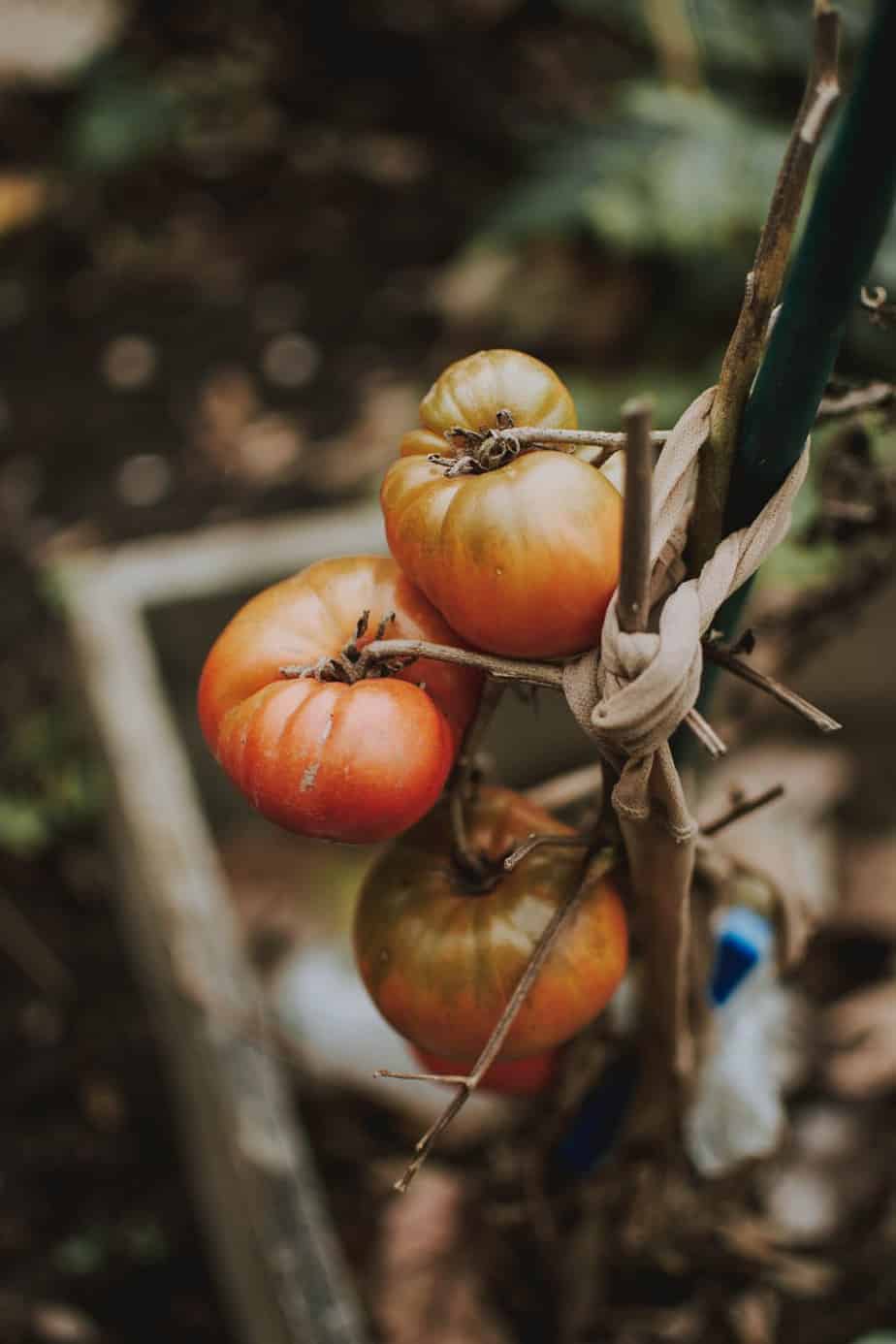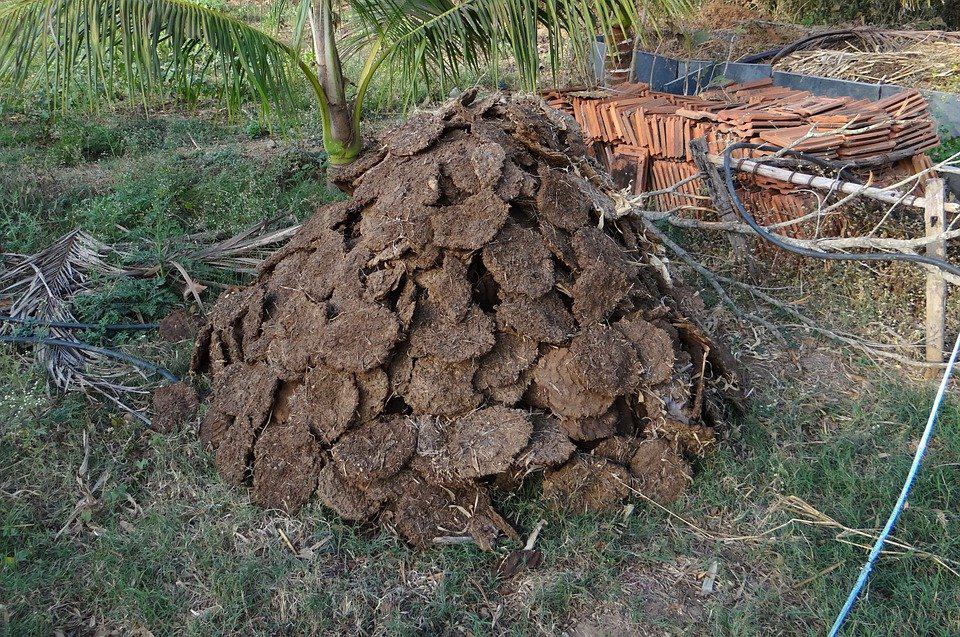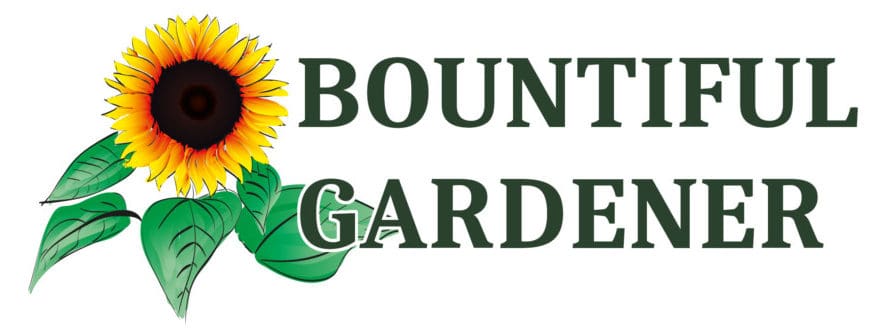We’ve all heard that compost is practically the be-all and end-all of organic gardening, and I’m willing to accept that, but can you grow vegetables in only compost? This was a question I asked myself a few years ago, and now with a few more years of gardening experience, I’m in the camp of yes, but it’s not the most efficient use of compost.
While growing tomatoes in pure compost can provide good yields, actual results may vary depending on the quality of the compost and how decomposed it is. Compost that is still very rough and woody won’t hold onto water as well. Your compost should also be well-balanced with all the micronutrients that a tomato needs to thrive. Optimal use of compost is as an amendment to your soil, adding it when transplanting your tomatoes, or making a compost-based potting mix.
On this page:
Benefits of Growing Tomatoes in Compost
Compost is a rich medium with more than enough nutrition to sustain a tomato plant all season long. Well-made compost will have all the ideal properties of a growing medium: good moisture retention, balanced NPK, and loads of micronutrients and minerals. Tomatoes are notorious heavy feeders, so it’s only logical that growing tomatoes entirely in compost just makes sense.
Compost can also serve as a foundation for a complex soil ecosystem by attracting worms and other decomposers, who will continue to enrich your soil over time. If you have poor soil, the best thing you can do to improve it is by adding rich organic matter, especially in the form of compost.
Disadvantages of Growing Tomatoes in Compost
 The downside is that compost is only as good as what was put into it. A well-balanced compost, one with good ratios of green (nitrogen) and brown (carbon) material, and kitchen scraps with various minerals and micronutrients, will have all the nutrients your tomato needs to mature. However, if your compost is out of balance or it lacks critical minerals, your tomatoes might not grow as healthy as they could. Legendary market gardener Charles Dowding starts almost all his vegetables in pure compost instead of potting mix or seed starting mix, but he makes his own compost. You can read some of his tips on making your own compost here. Azure Standard also has some advice on how to balance green and brown ratios.
The downside is that compost is only as good as what was put into it. A well-balanced compost, one with good ratios of green (nitrogen) and brown (carbon) material, and kitchen scraps with various minerals and micronutrients, will have all the nutrients your tomato needs to mature. However, if your compost is out of balance or it lacks critical minerals, your tomatoes might not grow as healthy as they could. Legendary market gardener Charles Dowding starts almost all his vegetables in pure compost instead of potting mix or seed starting mix, but he makes his own compost. You can read some of his tips on making your own compost here. Azure Standard also has some advice on how to balance green and brown ratios.
Another issue also depends on the texture of compost. Some well-decomposed compost is light and fluffy but also absorbs water. Other kinds of compost (especially those with lots of chunks of half-composted wood and sticks) just lets water pass right through it while absorbing little, if any. This is why homemade potting mixes typically aren’t 100% compost. They are generally 30-50% compost, some vermiculite or perlite, and the rest as peat moss or coco coir. The peat moss / coir is there for water retention, the vermiculite or perlite is for aeration, and the compost is for nutrients.
Can I Just Grow Tomatoes in My Compost Pile?
The answer depends on what kind of compost pile you have. If you have a cool, slow-composting pile, there shouldn’t be problem. If you’re doing hot composting, the temperature inside the compost pile will be enough to kill the roots of your tomato plant. But if your hot composting pile has mostly finished breaking down, you can plant your tomatoes in there.
Can I Grow Tomatoes in Manure?
This also depends what kind of manure you have, but generally if it’s aged or composted manure, it’s fine to plant tomatoes in it, especially cow manure. Composted cow manure has one of the most balanced NPK values compared to other manures, at around 0.8-0.5-0.5. The low numbers also means it won’t easily burn your plants.
You can use composted horse manure and chicken manure as an amendment, but it’s not ideal to just grow tomatoes in them. They have much more nitrogen (which is better for leaf and stem growth, not flowering and fruiting) and also have a tendency to burn plant roots, and even more so when they’re fresh.
Rabbit manure is one of the best manures you can use composted or fresh, but I have never heard of someone trying to grow vegetables entirely in rabbit manure. It’s still an excellent amendment to add to your soil, and some people toss in a few rabbit pellets into the hole when transplanting.

Recommended Way to Use Compost to Grow Tomatoes
As mentioned above, there are three main ways recommended to use compost when growing tomatoes: amending your soil, adding compost when transplanting, and making your own potting mix.
Amending Your Soil With Compost
There is a plethora of ways to amend your soil with compost. Some people just layer compost on top every year, like Charles Dowding. But he already has rich soil underneath.
I always recommend that if you have poor soil (too much clay, too much sand, exposed subsoil, etc.), you should add compost and till it into the top few inches. Even if you eventually want a no-till garden, I still recommend this early on in order to establish a layer of rich organic matter where soil life can thrive.
Adding Compost When Transplanting Tomatoes
If you don’t have that much compost, you can use it much the way you’d use an organic, slow-release fertilizer. If I have spare compost, I’ll add it into the hole where I transplant my tomatoes; if I don’t, I just mix in some organic fertilizer.
Most compost won’t burn roots, so placing it right where the roots will grow and spread out means none of those nutrients will be wasted and you can make much more efficient use of the compost you have. I use this in combination with planting tomatoes deep, because tomatoes grow new roots along their stem very easily. The result is a tomato plant with a strong, healthy root system and plentiful nutrients right where it needs it.
Making a Compost-Based Potting Mix for Tomatoes
If you are growing tomatoes in containers, you can use your compost to make a fluffy, light, yet absorbent and rich potting mix. My personal mix is around 40% compost, 40% coco coir (you can also use peat moss), and the rest as either vermiculite or perlite. A lot of people will use a 33/33/33% mix, and some will use 50% or more compost in their potting mix.
